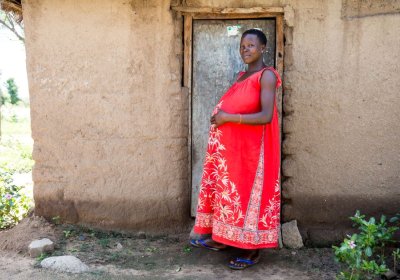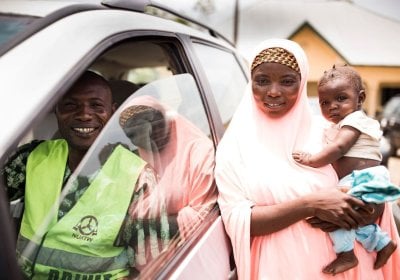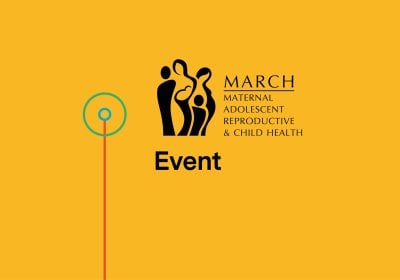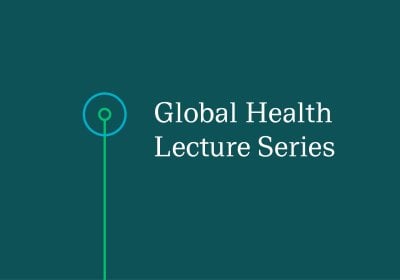Under-researched areas and marginalised populations in the field of gender-based violence

Trigger warning: This session will deal with issues including gender and sexual violence and abuse which may be triggering to survivors.
In this panel, speakers will present their research on gender-based violence (GBV) within marginalised populations and highlight areas for further research in the field of GBV. They will discuss the challenges and opportunities of working with marginalised populations and explore areas where evidence is limited.
Programme
- 12.45-12.47: Introduction
- 12.47-12.57: Research into the role of romantic jealousy in intimate partner violence
-
Speaker
Dr Erin Stern, Senior Associate with the Prevention Collaborative and Honorary Assistant Professor at LSHTM
Dr Erin Stern has PhD in Public Health from the University of Cape Town and an MSc in Health, Community and Development from the London School of Economics & Political Science. She is an Honorary Assistant Professor with LSHTM. She was a lead qualitative researcher with the What Works to Prevent Violence against Women and Girls Programme and has experience conducting research to develop and evaluate gender transformative programmes with numerous organisations. She is currently a Senior Associate with the Prevention Collaborative.
- 12.57-13.07: Research on sexual harassment of adolescent girls and young women
-
Speaker
Dr Joyce Wamoyi, Senior Social and Behavioural Research Scientist, National Institute for Medical Research in Mwanza, Tanzania
Dr Joyce Wamoyi is a Social and Behavioural researcher at the National Institute for Medical Research, Tanzania. She has an MSc in Public health and a PhD in social and Behavioural Sciences. For over 20 years, Dr Wamoyi has worked on understanding social and behavioural determinants of Adolescents and Young people’s Sexual and Reproductive Health (SRH); Structural drivers of HIV risk; Parenting/ families and prevention of Violence against children; stigma and discrimination in access to SRH services; and qualitative and participatory research methods.
In her work, she has explored the dynamics of transactional sex in adolescents and young women's sexual relationships in sub-Saharan Africa and sexual harassment in schools, workplace, and public place in Tanzania. She is currently working on the evaluation of the scale up of the Parenting for Lifelong Health programme in Tanzania. She is a member of the World Health Organization (WHO) Behavioural Insights Technical Advisory Group and United Nations Children's Fund (UNICEF) Advisory Board for the multi-country project “Children’s Experiences and Perspectives of COVID-19, and restrictions related to it”.
- 13.07-13.17: Research on violence against people with disabilities in Tanzania
-
Speakers
Professor Heidi Stöckl, Professor of Social Epidemiology, Insitute for Medical Information Processing, Biometry and Epidemiology at Ludwig-Maximilians- Universität in Munich, Germany
Professor Heidi Stöckl is a social epidemiologist with more than 20 years of experience in researching the epidemiology of intimate partner violence, violence-related mortality and human trafficking, including studies on the prevalence and health effects of intimate partner violence among the general population, pregnant and older women, the global prevalence of intimate partner homicide and perpetrators of child homicide, trafficking for sexual exploitation and forced marriage in Uzbekistan and China.
Her research mainly consists of large-scale survey data analysis and evidence synthesis and primary research including a randomised control trial in South Africa, cross-sectional surveys, penal file analyses and qualitative and methodological work in sub-Saharan Africa, Asia and Europe. In collaboration with the Mwanza Intervention Trials Unit, she is currently running the first longitudinal study among adult women on intimate partner violence in sub-Saharan Africa with four waves of data collection to explore the predictors and consequences of intimate partner violence, a qualitative study on perceptions and conceptualisations of sexual harassment in Tanzania and formative work through adaptive programming to develop an intervention addressing sexual violence among adolescent boys in Nigeria. For her DPhil, she conducted the first prevalence study on intimate partner violence during pregnancy in Germany.
Neema Mosha, Medical Statistician of the Mwanza Intervention Trials Unit (MITU)
Neema Mosha is a Medical Statistician at MITU. Previously, she worked as a statistician in the department of epidemiology and biostatistics at the Kilimanjaro Christian Medical University College in Moshi, northern Tanzania. She was a recipient of the Demographic Health Survey fellowship in 2014 and HIV Trust Scholarship between 2014 and 2015. Currently, she is enrolled in a PhD degree programme in biostatistics at Stellenbosch University in South Africa as part of the sub-Saharan Africa Consortium for Advanced Biostatistics training programme. Her project focus on advanced statistical methods of analysing HIV surveillance data to account for missing data and application of other advanced statistical methods to estimate causal effects in observational studies.
Neema has conducted research in a range of topics including HIV/AIDS and other sexually transmitted infections, non-communicable diseases, gender violence and women empowerment, health systems, and more recently on emerging infectious diseases.
- 13.17-13.27: Research on GBV Coordination in Humanitarian Settings
-
Speaker
Philomena Raftery, Doctoral Student, LSHTM
Philomena is an experienced global health professional with extensive experience in epidemic and pandemic response. She has 20 of experience in infectious disease diagnostics, and since 2015, has worked with the World Health Organization (WHO) health emergencies programme supporting developing countries to respond to infectious disease outbreaks and to build laboratory systems. In her current role as international technical officer in the WHO Turkey office, she works to strengthen national capacities for genomic sequencing for SARS-CoV-2, antimicrobial resistance (AMR) and other high-threat pathogens. Throughout 2020-21 she coordinated the national laboratory response for the COVID-19 pandemic in Cambodia. She played a leading role in expansion of molecular diagnostics testing capacity, facilitated the development of testing strategies and innovative solutions to strengthen the response. In previous roles with WHO in Sierra Leone and Liberia, she provided technical and operational support during Ebola and Lassa Fever outbreaks. In 2017 she worked as a scientific consultant with the International Diagnostics Centre at LSHTM, and contributed to several projects, including development of an online training course on the role of diagnostics in AMR.
Philomena is in the final stages of completing a Doctorate of Public Health, at LSHTM. Her doctoral research has included partnership models for epidemic preparedness and response and GBV coordination in emergencies. She conducted an analysis of the UK Public Health Rapid Support Team, an innovative partnership whose mandate combines operational research and outbreak response and for her thesis is exploring GBV coordination in the humanitarian response in Lebanon. She is passionate about women's empowerment and female leadership and is committed to the global fight against GBV. In Cambodia, she acted as gender, equity and rights (GER) focal person in the WHO office, promoting integration of GER across WHO’s work. She is also a member of the global WHO gender mainstreaming in health emergencies task force. Throughout her career, she has coordinated a range of operational research projects and authored/co-authored several peer-reviewed publications.
- 13.37-13.45: Q&A Discussion
-
Moderator
Professor Hannah Kuper
Admission
Contact





